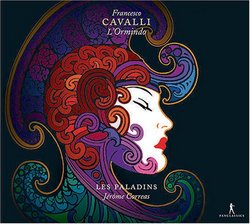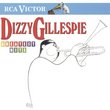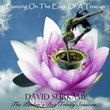| All Artists: Francesco Cavalli, Jérôme Correas, Les Paladins, Sandrine Piau, Magali Leger, Dominique Visse, Netta Or, Karine Deshayes, Jacques Bona, Benoît Arnould Title: Cavalli - L'Ormindo / Les Paladins, Correas Members Wishing: 1 Total Copies: 0 Label: New Pan Classics Original Release Date: 1/1/2007 Re-Release Date: 7/24/2007 Album Type: Import Genre: Classical Styles: Opera & Classical Vocal, Historical Periods, Baroque (c.1600-1750) Number of Discs: 2 SwapaCD Credits: 2 UPCs: 675754000899, 7619990101968 |
Search - Francesco Cavalli, Jérôme Correas, Les Paladins :: Cavalli - L'Ormindo / Les Paladins, Correas
 | Francesco Cavalli, Jérôme Correas, Les Paladins Cavalli - L'Ormindo / Les Paladins, Correas Genre: Classical
ENSEMBLE LES PALADINS |
Larger Image |
CD DetailsSynopsis
Product Description ENSEMBLE LES PALADINS Similar CDs
|
CD ReviewsLovely Baroque opera, excellent recording klavierspiel | TX, USA | 05/23/2008 (5 out of 5 stars) "Although opera companies are much more adventurous about mounting productions of works written before Mozart than they used to be, there are still gaps in the repertory. While performances of Monteverdi (early seventeenth century) and Handel (early eighteenth-century) operas have become almost commonplace, works of the mid- to late seventeenth century still are rarely seen. The operas of the Venetian composer Francesco Cavalli in particular would seem to be worthy candidates for more frequent production. Ormindo, first performed in 1644, is typical of his work, and quite accessible to modern audiences. The plot, involving two African princes in love with the same beautiful woman (who of course is unavailable, being already married to an aged and powerful monarch), is easy to follow and not too outlandish; comic and powerfully emotional moments are contrasted in effective fashion; and above all, the music is consistently melodious and gratefully written for the voices. Several decades ago the conductor Raymond Leppard revived Ormindo and other Cavalli operas in his own editions, which were cut, transposed and otherwise heavily modernized. The current recording by the Baroque ensemble Les Paladins adheres to a more authentic text and to historically informed performance practice, and is none the worse for it. The cast is vocally top-notch and all throw themselves into their roles with enthusiasm. Jérome Corréas, the director and continuo performer of Les Paladins, keeps the proceedings moving at a brisk pace, minimizing the occasional longeurs. Opera lovers already acquainted with the delights of Baroque opera should definitely sample this recording." Deep trouble but delectable music Stephen Midgley | Tarbrax, West Calder, UK | 09/25/2009 (5 out of 5 stars) "The operas of the baroque composer Pier Francesco Cavalli, brilliant successor to the great originator Monteverdi, have been getting a bit more attention in recent years. This recording by Les Paladins, directed by Jérôme Correas, here offers a historically inspired performance very similar in scale to what Cavalli might have heard in Venice in his own time.
"L'Ormindo", originally performed in 1644, contains some of Cavalli's most exhilarating and affecting music. Like most baroque operas from the later works of Monteverdi onward, the plot offers a fair mixture of love, tragedy, betrayal, revenge and reconciliation. Here the main characters are few but strongly delineated; the story - set in Fez, Morocco - is involving and fairly simple in outline; and the music is glorious. After the Prologue the action proper begins with two of the work's many fine melodies sung by Ormindo, who is then joined by the other main male protagonist Amida. The two friends each boast of their new-found love and then proceed to show one another pictures of the lady in question ..... who turns out to be the same woman, Erisbe (I was lucky enough to attend the premiere of Correas's production at Nanterre in April 2007, a highly entertaining performance set in modern times; so in this scene, to the delight of the audience, the two men showed each other pictures of their loved one(s) on their mobile phones). To make matters worse Erisbe is already the wife of male number 3, who just happens to be the king of Morocco. Clearly, from this point on several of the characters are going to be in deep trouble and much of the subsequent action, both tragic and comical, develops from this. The principal women, Erisbe and Sicle, have powerful roles and equally fine music. Later on in Act I there is a lovely sequence in which Sicle sings a beautiful, sad aria on the loss of her lover, "Chi, chi mi toglie al die"; this is followed by her nurse Erice (sung by a tenor in drag) commenting to the audience ironically on the misfortunes of her mistress in the exhilarating "Mai volli ch'il mio core" - the ritornelli here played with delicious, expressive poignancy by the instruments. This is one of several moments in the opera where the lower orders comment wryly on the self-imposed predicaments of their social (but by no means intellectual) superiors. There are many other vocal delights throughout the work, ranging from the breathlessly excited aria "Che città" sung by Amida's page Nerillo (Dominique Visse), on his own in the big city for the first time, to the affecting prison scene duet where Erisbe and Ormindo are preparing to die. Les Paladins are an outstanding and authentic-sounding early music ensemble, and the singing cast, who include Dominique Visse, Howard Crook and Sandrine Piau, are all excellent as well. Jérôme Correas's direction is stylish and imaginative, and the recording is both clear and atmospheric. Pan Classics provide a full Italian text with translations into English, French and German; one small problem for the listener is that, since of course we cannot see what is going on, it is not always clear in which scenes certain of the characters are in disguise and so we have to work this out for ourselves through careful attention to the libretto. Apart from this the booklet notes on background, plot, music and artists are well organised and informative. The work itself is sure to please all lovers of Cavalli's music and of baroque opera in general. So altogether, both for the music and for its interpretation, this set is a fine achievement and a delight to listen to. " |

 Track Listings (12) - Disc #1
Track Listings (12) - Disc #1


